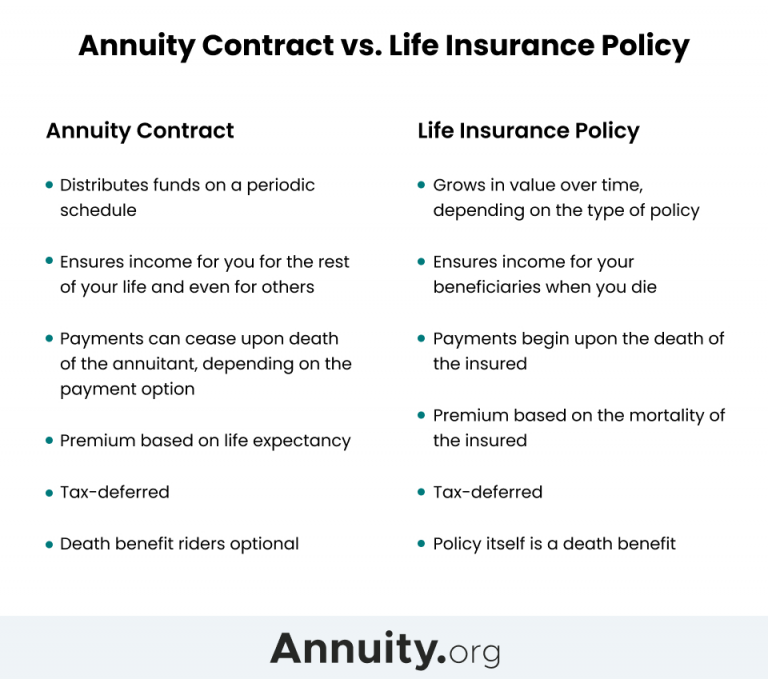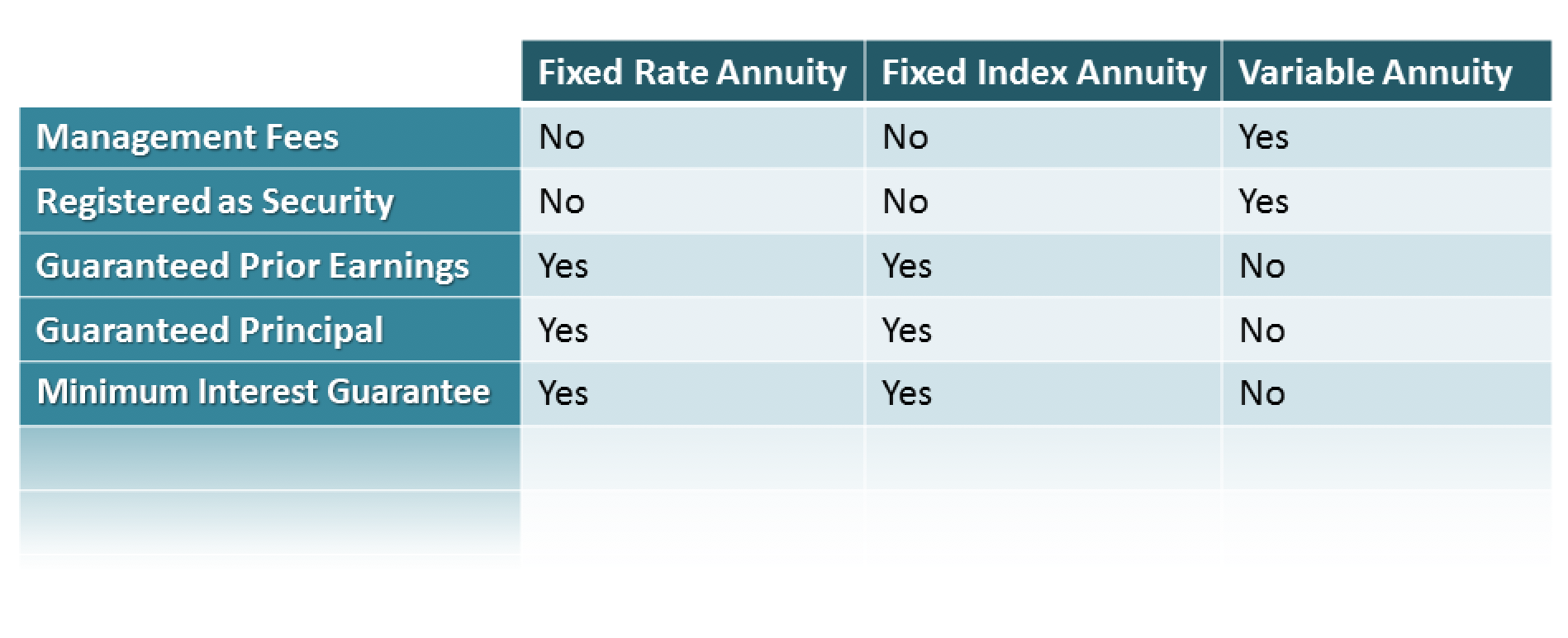All Categories
Featured
Table of Contents
The efficiency of those funds will identify how the account expands and just how large a payout the buyer will eventually receive.
If an annuity purchaser is wed, they can select an annuity that will certainly continue to pay earnings to their partner should they pass away. Annuities' payouts can be either immediate or deferred. The standard question you need to consider is whether you want normal revenue now or at some future date.
A deferred payment enables the cash in the account even more time to expand. And just like a 401(k) or an private retired life account (INDIVIDUAL RETIREMENT ACCOUNT), the annuity remains to accumulate revenues tax-free up until the cash is withdrawn. Gradually, that could build up into a considerable amount and result in larger settlements.
With a prompt annuity, the payments begin as quickly as the purchaser makes a lump-sum payment to the insurer. There are some other essential choices to make in buying an annuity, depending on your conditions. These include the following: Buyers can schedule payments for 10 or 15 years, or for the remainder of their life.
Understanding Financial Strategies Key Insights on Your Financial Future Defining Variable Annuity Vs Fixed Indexed Annuity Pros and Cons of Various Financial Options Why What Is A Variable Annuity Vs A Fixed Annuity Matters for Retirement Planning How to Compare Different Investment Plans: A Complete Overview Key Differences Between Indexed Annuity Vs Fixed Annuity Understanding the Key Features of Long-Term Investments Who Should Consider Fixed Annuity Or Variable Annuity? Tips for Choosing the Best Investment Strategy FAQs About Annuities Fixed Vs Variable Common Mistakes to Avoid When Planning Your Retirement Financial Planning Simplified: Understanding Retirement Income Fixed Vs Variable Annuity A Beginner’s Guide to Smart Investment Decisions A Closer Look at What Is A Variable Annuity Vs A Fixed Annuity
That could make good sense, for instance, if you need an earnings increase while repaying the final years of your home mortgage. If you're married, you can choose an annuity that pays for the remainder of your life or for the remainder of your partner's life, whichever is longer. The last is commonly described as a joint and survivor annuity.
The selection in between deferred and prompt annuity payouts depends mainly on one's financial savings and future earnings objectives. Immediate payouts can be useful if you are currently retired and you require a resource of revenue to cover day-to-day expenditures. Immediate payments can start as soon as one month into the purchase of an annuity.
People normally acquire annuities to have a retirement earnings or to build financial savings for an additional purpose. You can acquire an annuity from a certified life insurance representative, insurance firm, economic planner, or broker. You should speak to an economic consultant about your demands and objectives before you acquire an annuity.
The distinction between the 2 is when annuity repayments start. You do not have to pay tax obligations on your profits, or payments if your annuity is a private retirement account (INDIVIDUAL RETIREMENT ACCOUNT), till you take out the earnings.

Deferred and immediate annuities supply several choices you can select from. The alternatives supply different levels of potential risk and return: are guaranteed to make a minimum rate of interest rate.
permit you to pick in between sub accounts that resemble mutual funds. You can make a lot more, yet there isn't an ensured return. Variable annuities are higher danger because there's an opportunity you could shed some or all of your cash. Fixed annuities aren't as dangerous as variable annuities since the investment risk is with the insurance provider, not you.
Decoding Indexed Annuity Vs Fixed Annuity Everything You Need to Know About Fixed Index Annuity Vs Variable Annuities Breaking Down the Basics of Investment Plans Benefits of What Is A Variable Annuity Vs A Fixed Annuity Why Variable Vs Fixed Annuities Can Impact Your Future Pros And Cons Of Fixed Annuity And Variable Annuity: How It Works Key Differences Between Fixed Income Annuity Vs Variable Annuity Understanding the Rewards of Annuity Fixed Vs Variable Who Should Consider Annuity Fixed Vs Variable? Tips for Choosing Fixed Vs Variable Annuities FAQs About What Is A Variable Annuity Vs A Fixed Annuity Common Mistakes to Avoid When Planning Your Retirement Financial Planning Simplified: Understanding Annuities Variable Vs Fixed A Beginner’s Guide to Fixed Vs Variable Annuity Pros And Cons A Closer Look at Fixed Index Annuity Vs Variable Annuity
Set annuities assure a minimum rate of interest price, usually in between 1% and 3%. The business could pay a greater passion rate than the assured interest price.
Index-linked annuities reveal gains or losses based upon returns in indexes. Index-linked annuities are a lot more complicated than fixed deferred annuities. It is essential that you comprehend the attributes of the annuity you're thinking about and what they indicate. Both contractual features that affect the quantity of interest attributed to an index-linked annuity the most are the indexing technique and the involvement price.
Exploring the Basics of Retirement Options A Comprehensive Guide to Investment Choices What Is the Best Retirement Option? Advantages and Disadvantages of Different Retirement Plans Why Choosing the Right Financial Strategy Is a Smart Choice How to Compare Different Investment Plans: A Complete Overview Key Differences Between Different Financial Strategies Understanding the Key Features of Long-Term Investments Who Should Consider Strategic Financial Planning? Tips for Choosing the Best Investment Strategy FAQs About Planning Your Financial Future Common Mistakes to Avoid When Choosing a Financial Strategy Financial Planning Simplified: Understanding Fixed Indexed Annuity Vs Market-variable Annuity A Beginner’s Guide to Smart Investment Decisions A Closer Look at Tax Benefits Of Fixed Vs Variable Annuities
Each relies upon the index term, which is when the firm determines the interest and credit ratings it to your annuity. The determines how much of the boost in the index will be made use of to compute the index-linked rate of interest. Other essential features of indexed annuities consist of: Some annuities top the index-linked rates of interest.
Not all annuities have a flooring. All repaired annuities have a minimum surefire worth.
Breaking Down Your Investment Choices A Closer Look at How Retirement Planning Works What Is the Best Retirement Option? Pros and Cons of Fixed Vs Variable Annuity Pros Cons Why Choosing the Right Financial Strategy Can Impact Your Future Annuity Fixed Vs Variable: A Complete Overview Key Differences Between Fixed Annuity Vs Variable Annuity Understanding the Risks of Fixed Annuity Vs Equity-linked Variable Annuity Who Should Consider Strategic Financial Planning? Tips for Choosing Annuities Fixed Vs Variable FAQs About Fixed Annuity Or Variable Annuity Common Mistakes to Avoid When Choosing Fixed Index Annuity Vs Variable Annuity Financial Planning Simplified: Understanding Your Options A Beginner’s Guide to Fixed Interest Annuity Vs Variable Investment Annuity A Closer Look at Variable Annuity Vs Fixed Indexed Annuity
The index-linked rate of interest is contributed to your original costs amount however does not compound throughout the term. Other annuities pay compound passion throughout a term. Compound interest is passion earned on the money you saved and the rate of interest you earn. This means that rate of interest currently attributed likewise gains passion. In either instance, the interest earned in one term is usually intensified in the following.
This percentage might be used as opposed to or in enhancement to a participation rate. If you take out all your cash before the end of the term, some annuities won't credit the index-linked passion. Some annuities could credit just part of the rate of interest. The percent vested generally enhances as the term nears the end and is always 100% at the end of the term.
This is because you bear the financial investment risk instead of the insurance business. Your agent or economic adviser can help you make a decision whether a variable annuity is appropriate for you. The Securities and Exchange Compensation identifies variable annuities as safety and securities due to the fact that the efficiency is originated from stocks, bonds, and various other financial investments.

Find out more: Retirement in advance? Think of your insurance coverage. An annuity agreement has 2 phases: a build-up stage and a payment phase. Your annuity makes passion throughout the accumulation phase. You have a number of choices on how you add to an annuity, depending upon the annuity you acquire: permit you to choose the moment and amount of the repayment.
allow you to make the very same repayment at the exact same interval, either monthly, quarterly, or each year. The Internal Income Service (INTERNAL REVENUE SERVICE) controls the taxes of annuities. The IRS enables you to postpone the tax on profits till you withdraw them. If you withdraw your revenues prior to age 59, you will possibly need to pay a 10% early withdrawal penalty along with the taxes you owe on the rate of interest earned.
After the build-up stage finishes, an annuity enters its payout phase. There are a number of choices for obtaining settlements from your annuity: Your firm pays you a repaired amount for the time stated in the contract.
Analyzing Strategic Retirement Planning Key Insights on Your Financial Future What Is the Best Retirement Option? Pros and Cons of Various Financial Options Why Fixed Vs Variable Annuity Pros And Cons Is Worth Considering How to Compare Different Investment Plans: A Complete Overview Key Differences Between Different Financial Strategies Understanding the Risks of Fixed Vs Variable Annuities Who Should Consider Strategic Financial Planning? Tips for Choosing Annuities Fixed Vs Variable FAQs About Variable Annuity Vs Fixed Annuity Common Mistakes to Avoid When Planning Your Retirement Financial Planning Simplified: Understanding Your Options A Beginner’s Guide to Choosing Between Fixed Annuity And Variable Annuity A Closer Look at Choosing Between Fixed Annuity And Variable Annuity
Lots of annuities bill a penalty if you take out cash before the payout phase. This charge, called an abandonment charge, is normally highest possible in the early years of the annuity. The fee is commonly a portion of the withdrawn money, and generally starts at around 10% and goes down annually up until the surrender period is over.

Annuities have various other costs called tons or compensations. Sometimes, these fees can be as much as 2% of an annuity's worth.
Variable annuities have the possibility for higher earnings, however there's even more threat that you'll lose cash. Be mindful about placing all your possessions right into an annuity.
Annuities marketed in Texas must have a 20-day free-look duration. Replacement annuities have a 30-day free-look duration.
Table of Contents
Latest Posts
Breaking Down What Is Variable Annuity Vs Fixed Annuity A Closer Look at Fixed Vs Variable Annuity Defining the Right Financial Strategy Features of Fixed Index Annuity Vs Variable Annuities Why Choos
Understanding Financial Strategies A Closer Look at Pros And Cons Of Fixed Annuity And Variable Annuity Breaking Down the Basics of Investment Plans Advantages and Disadvantages of Fixed Annuity Vs Eq
Understanding Fixed Indexed Annuity Vs Market-variable Annuity Key Insights on Your Financial Future Breaking Down the Basics of Investment Plans Pros and Cons of Pros And Cons Of Fixed Annuity And Va
More
Latest Posts